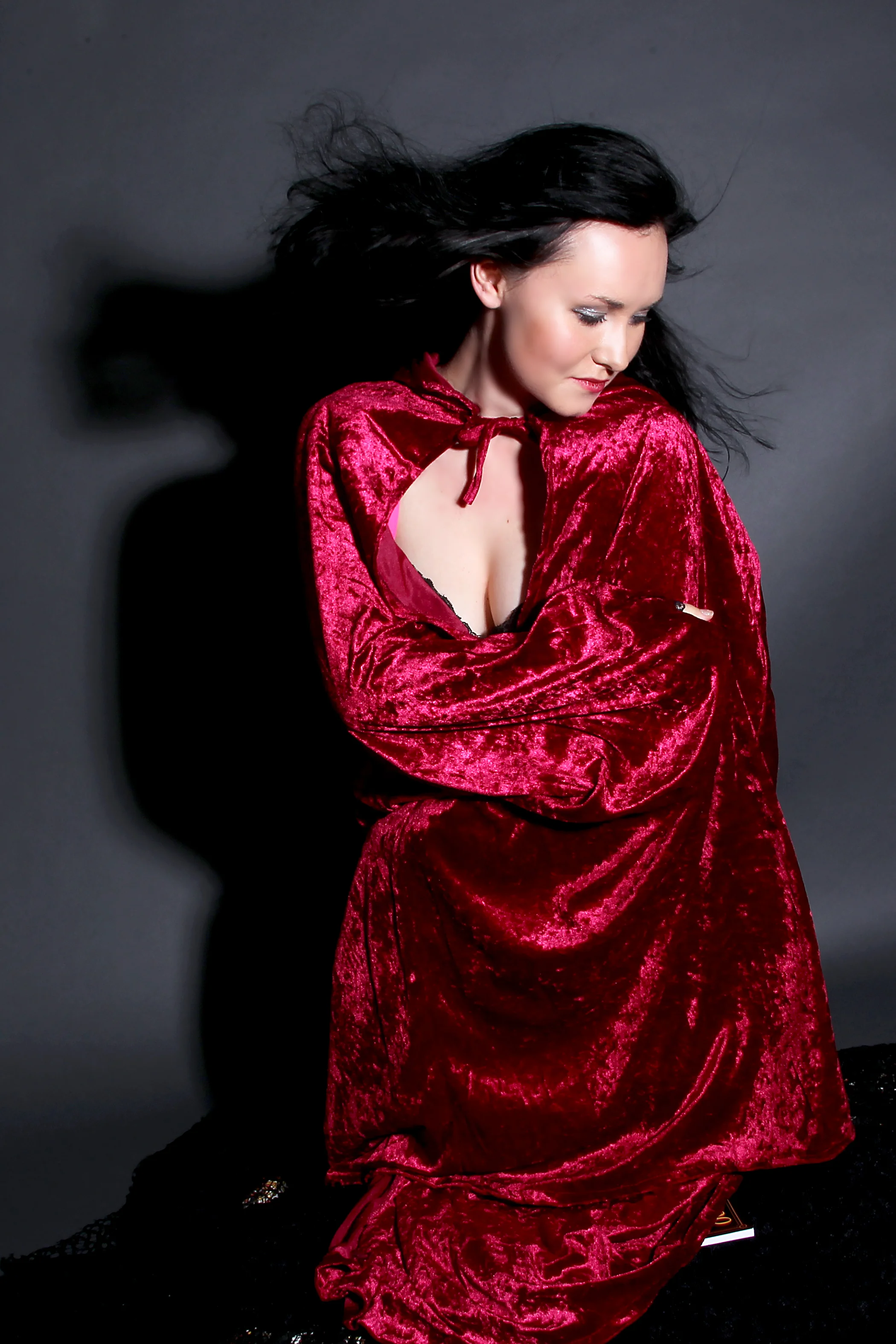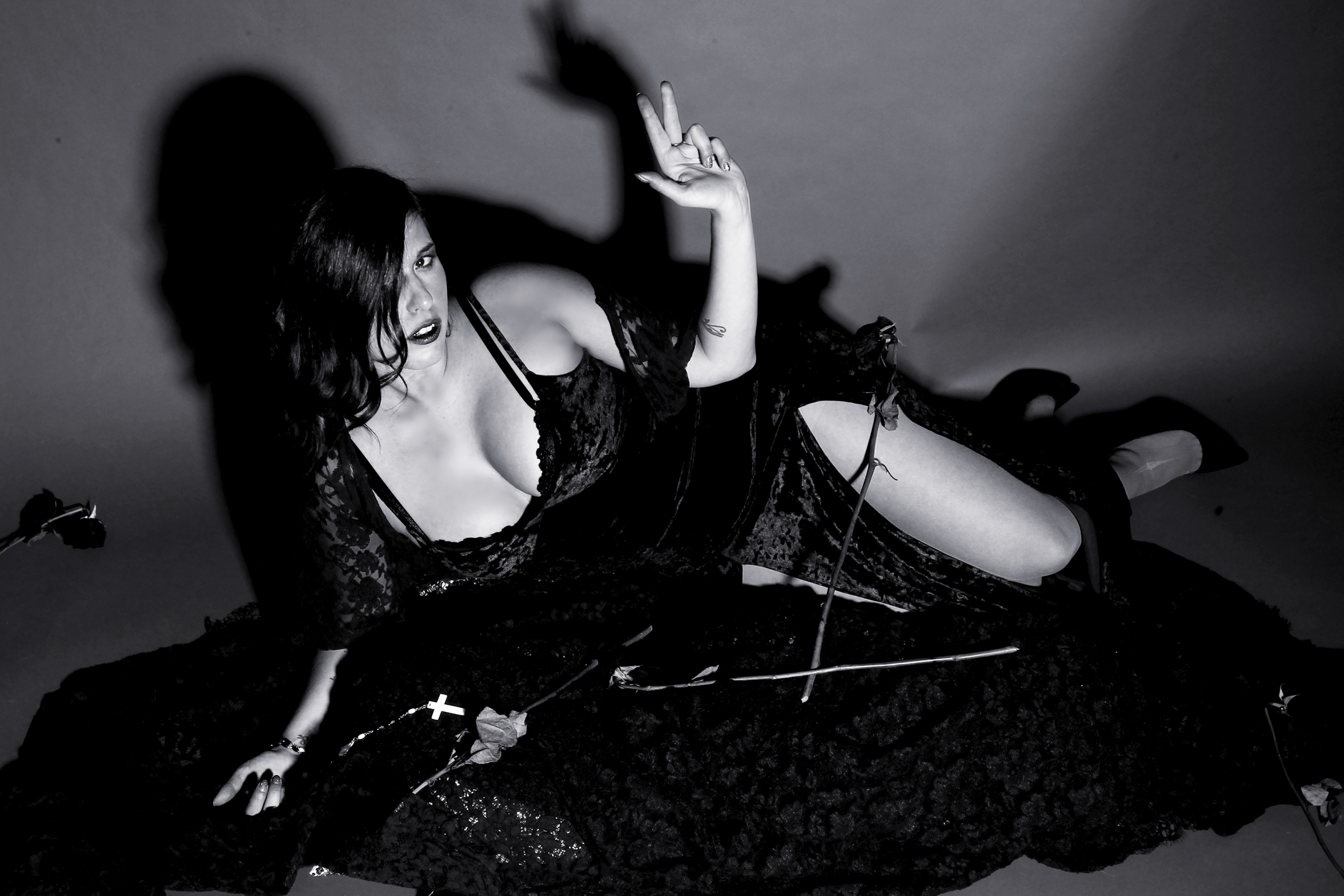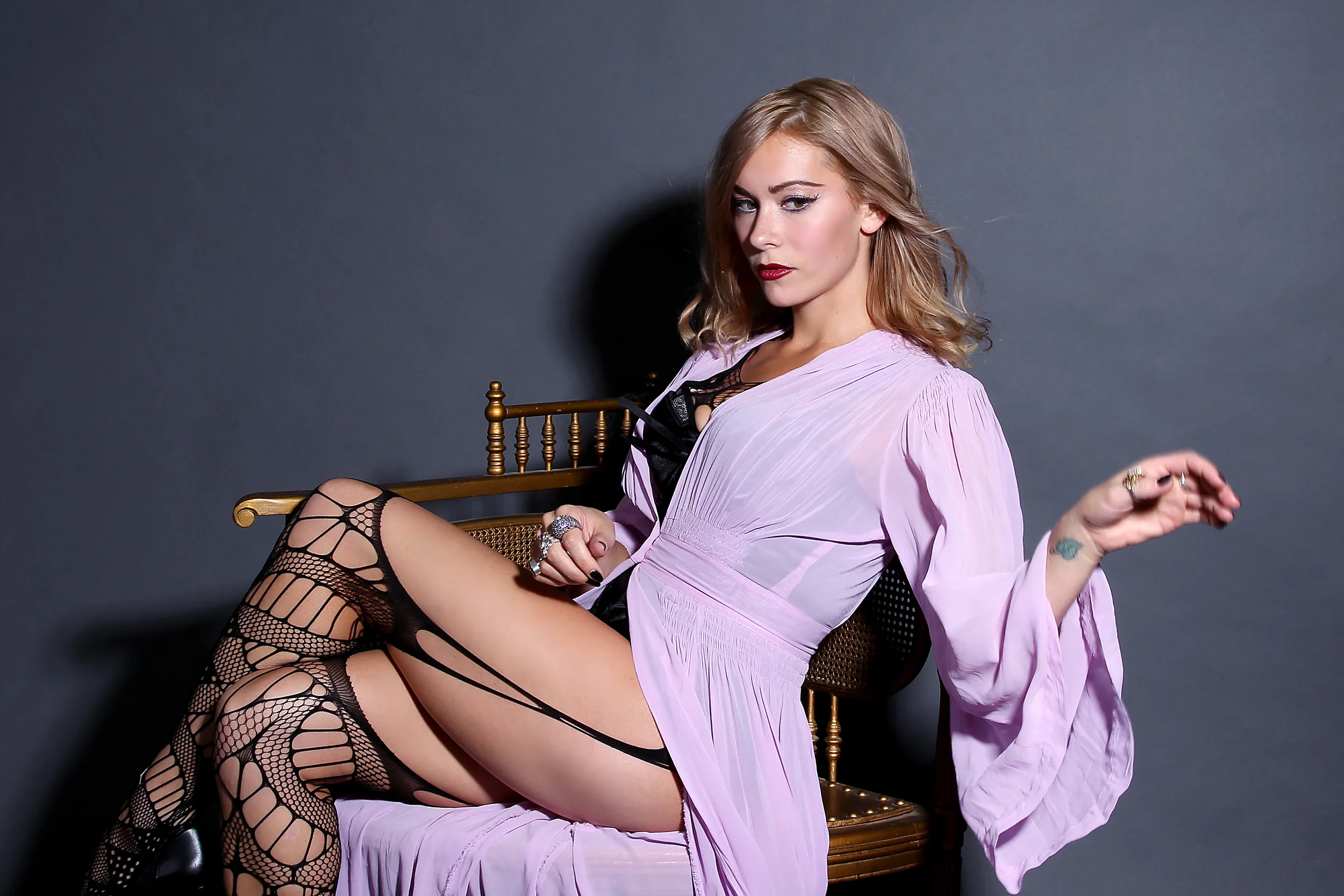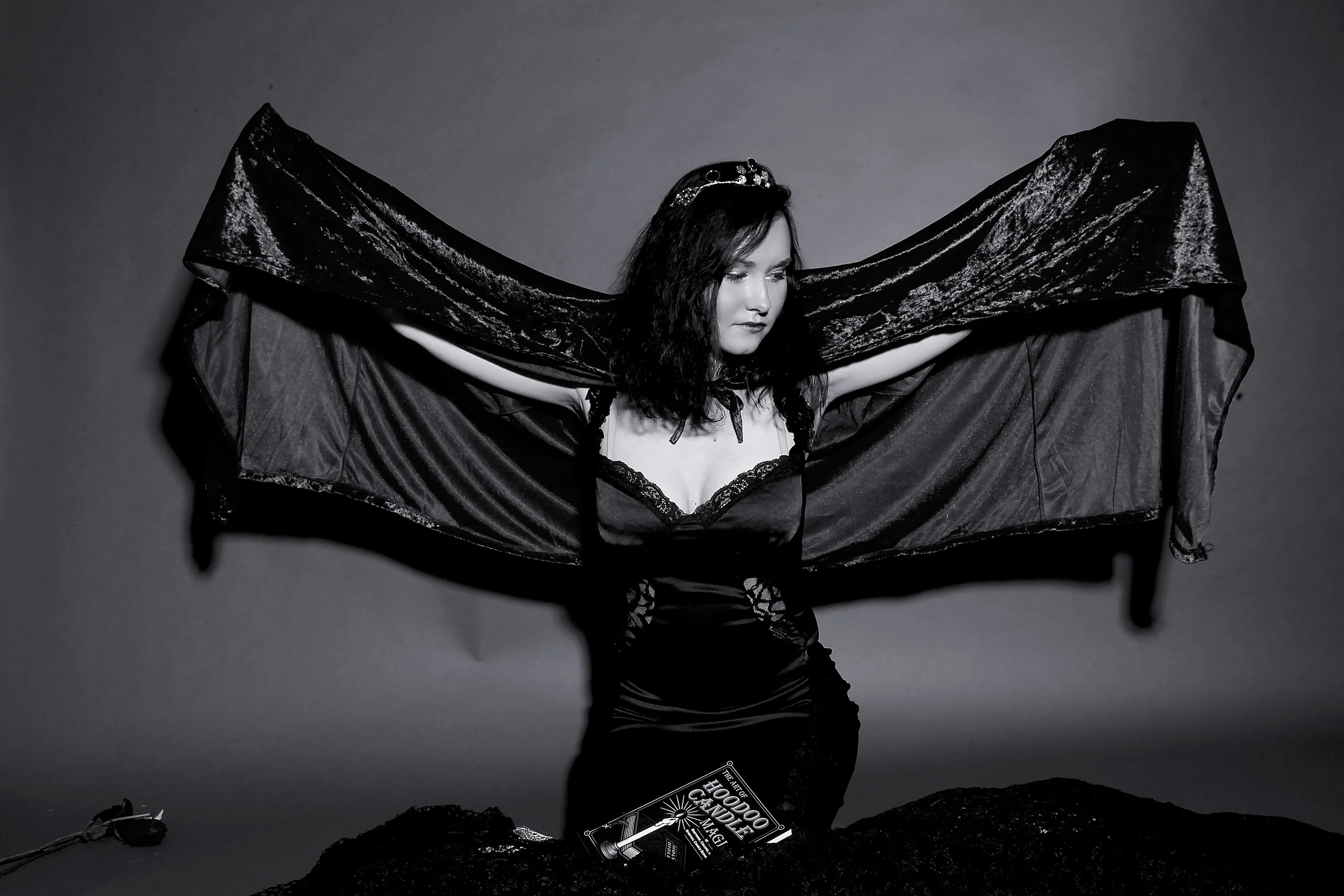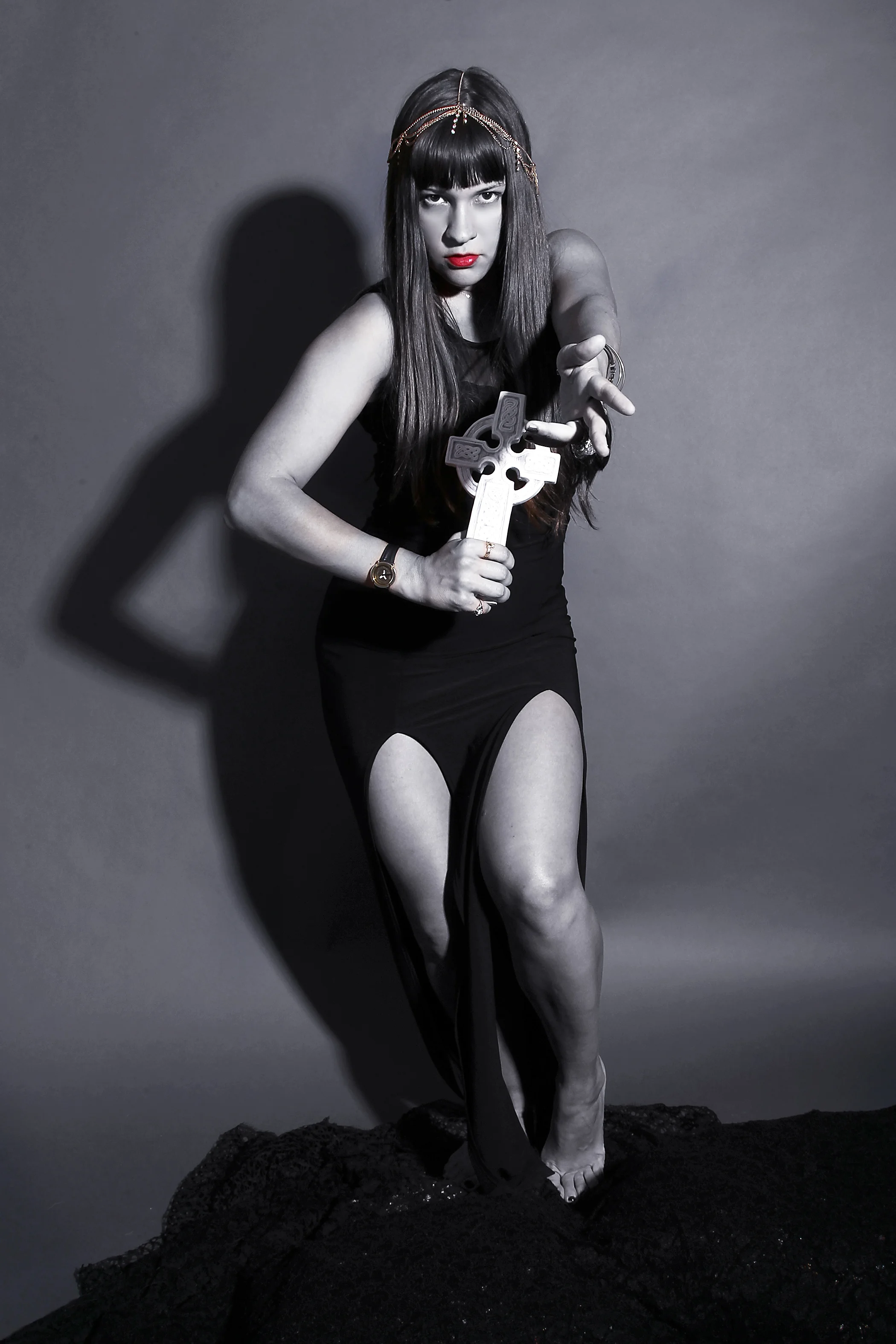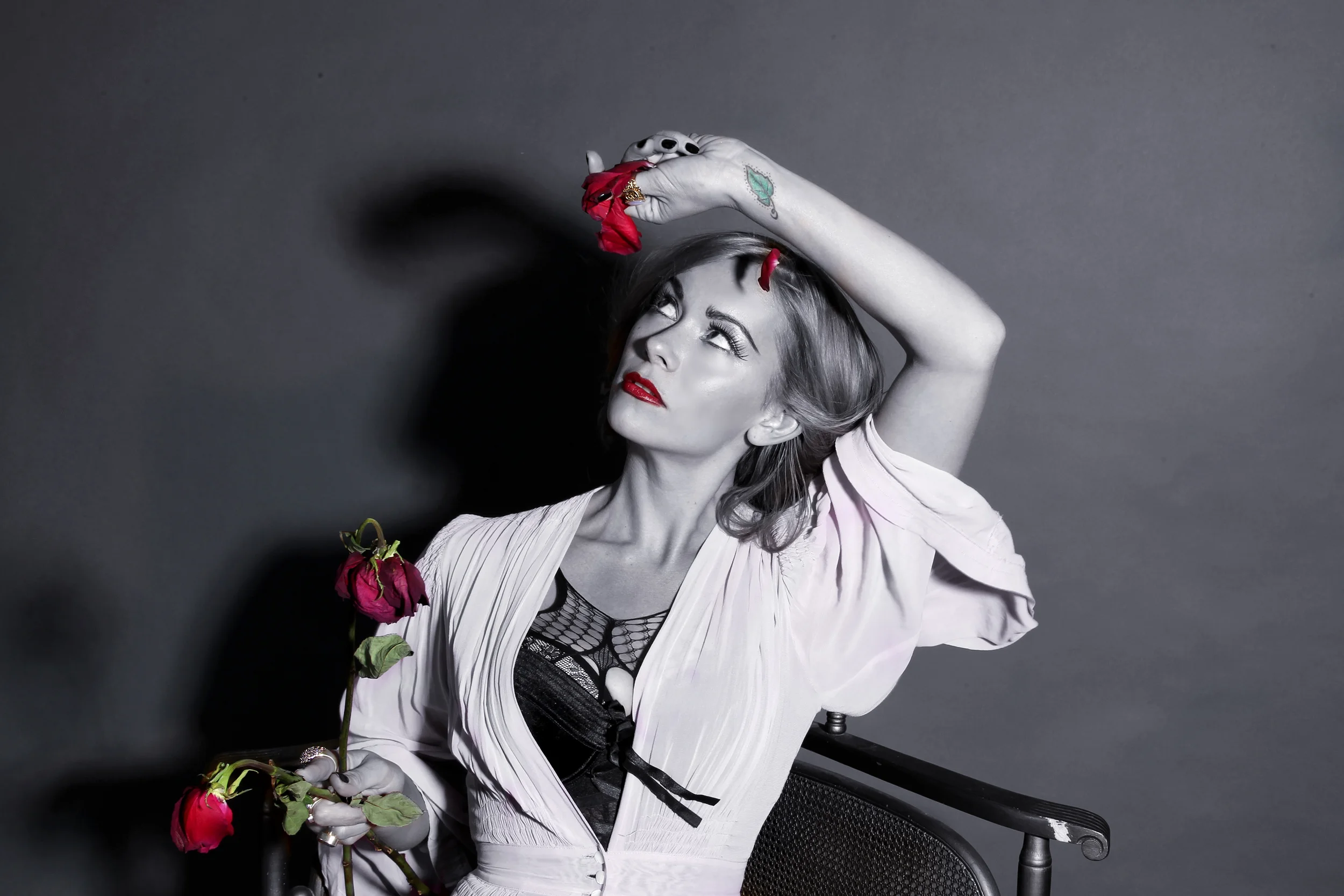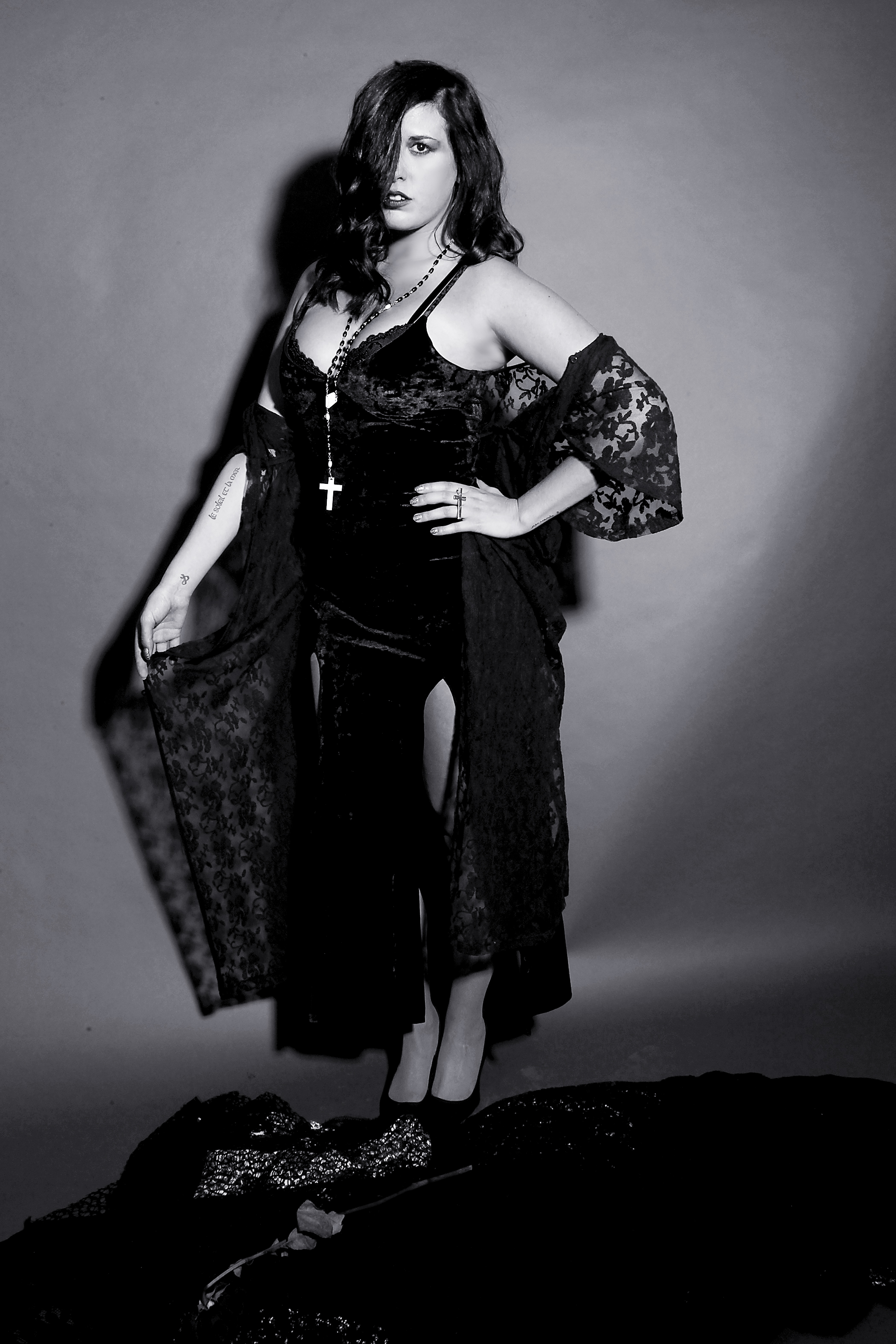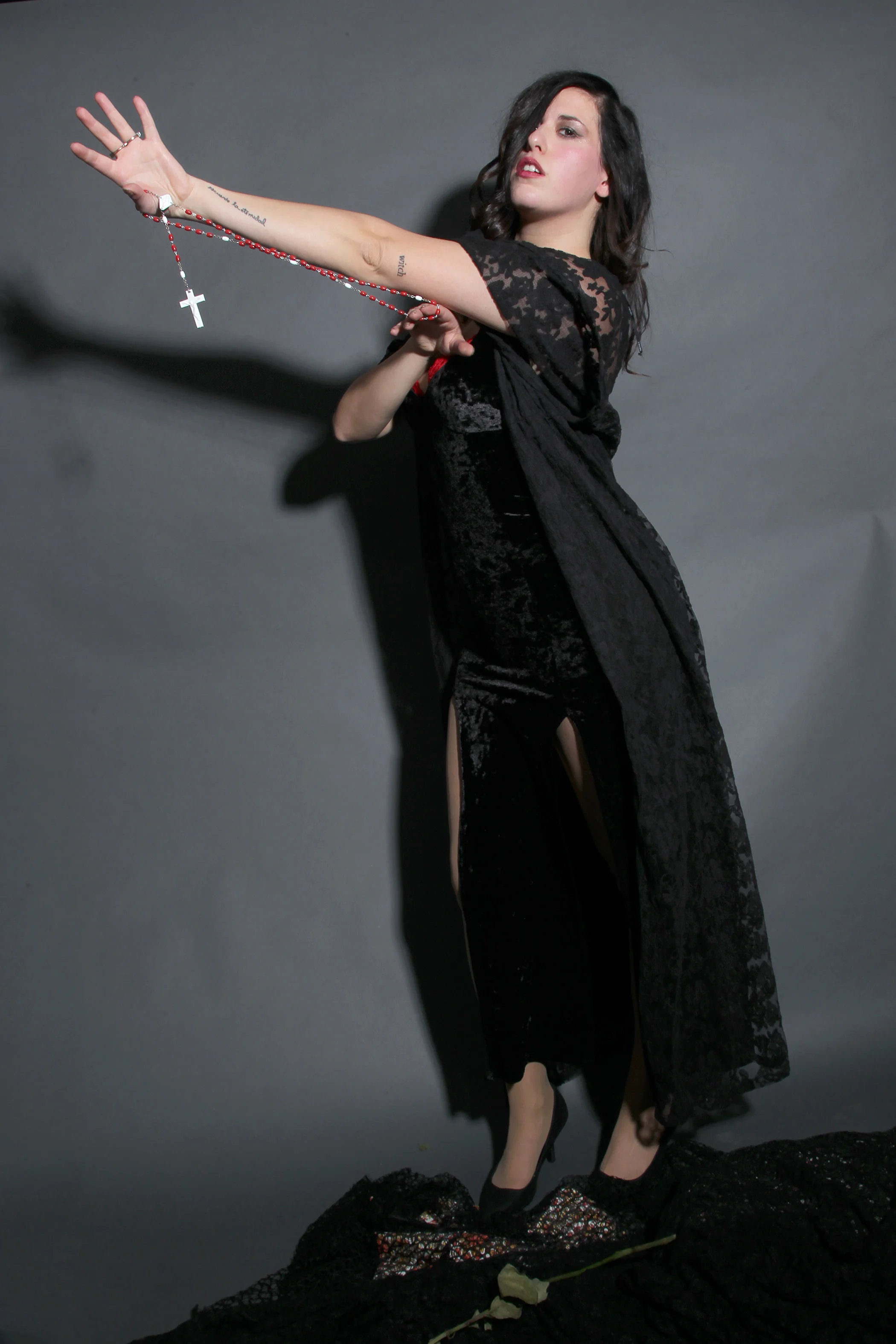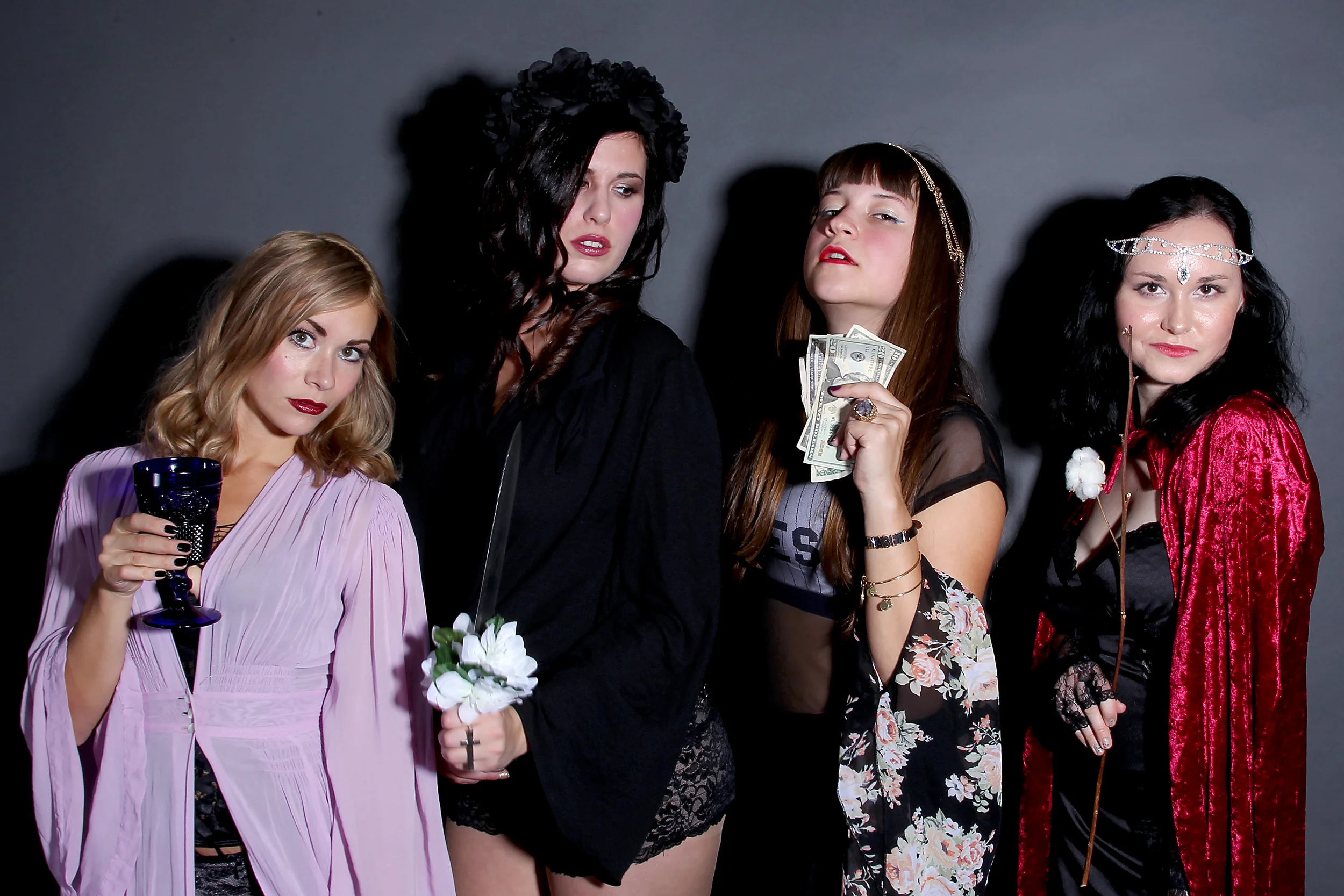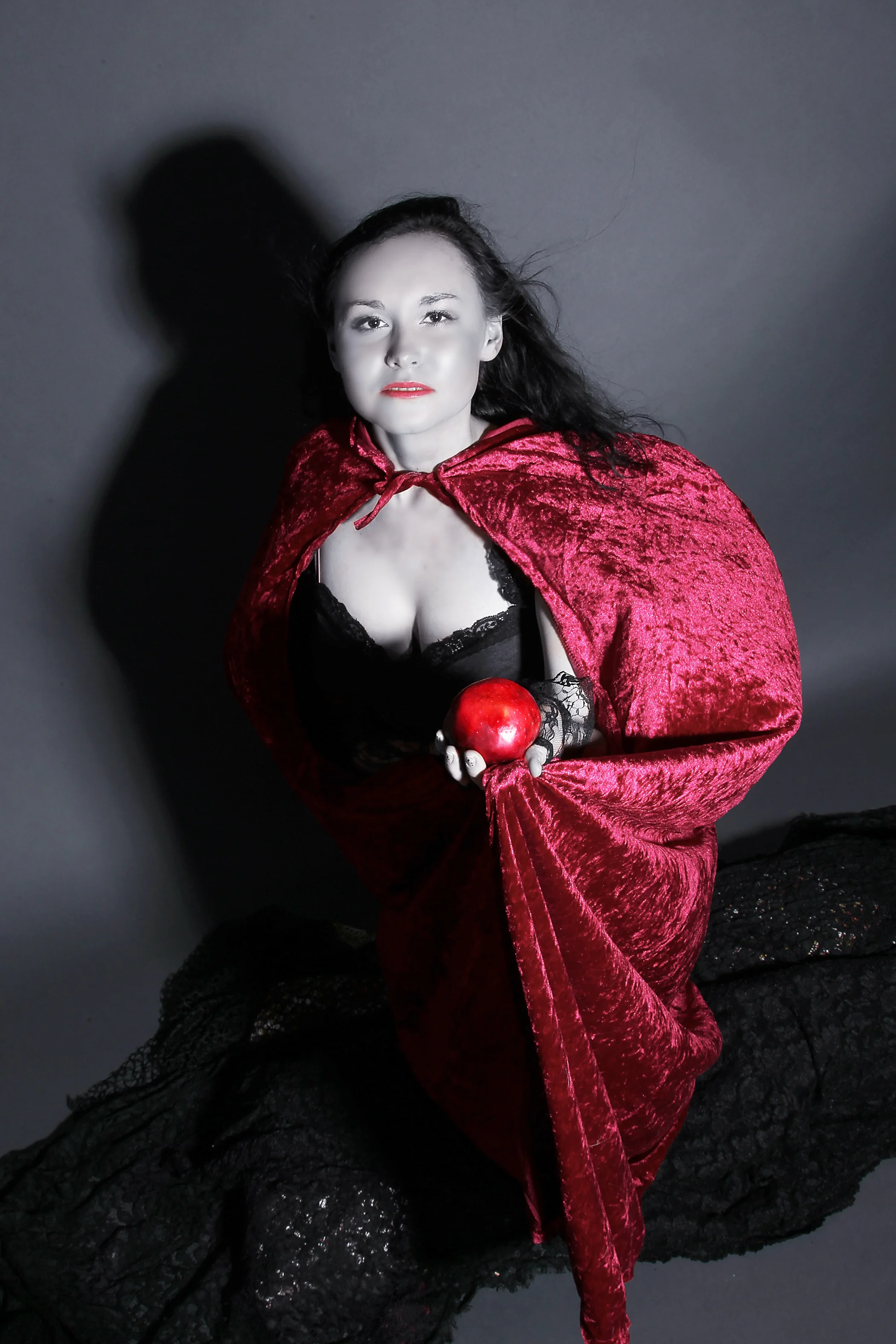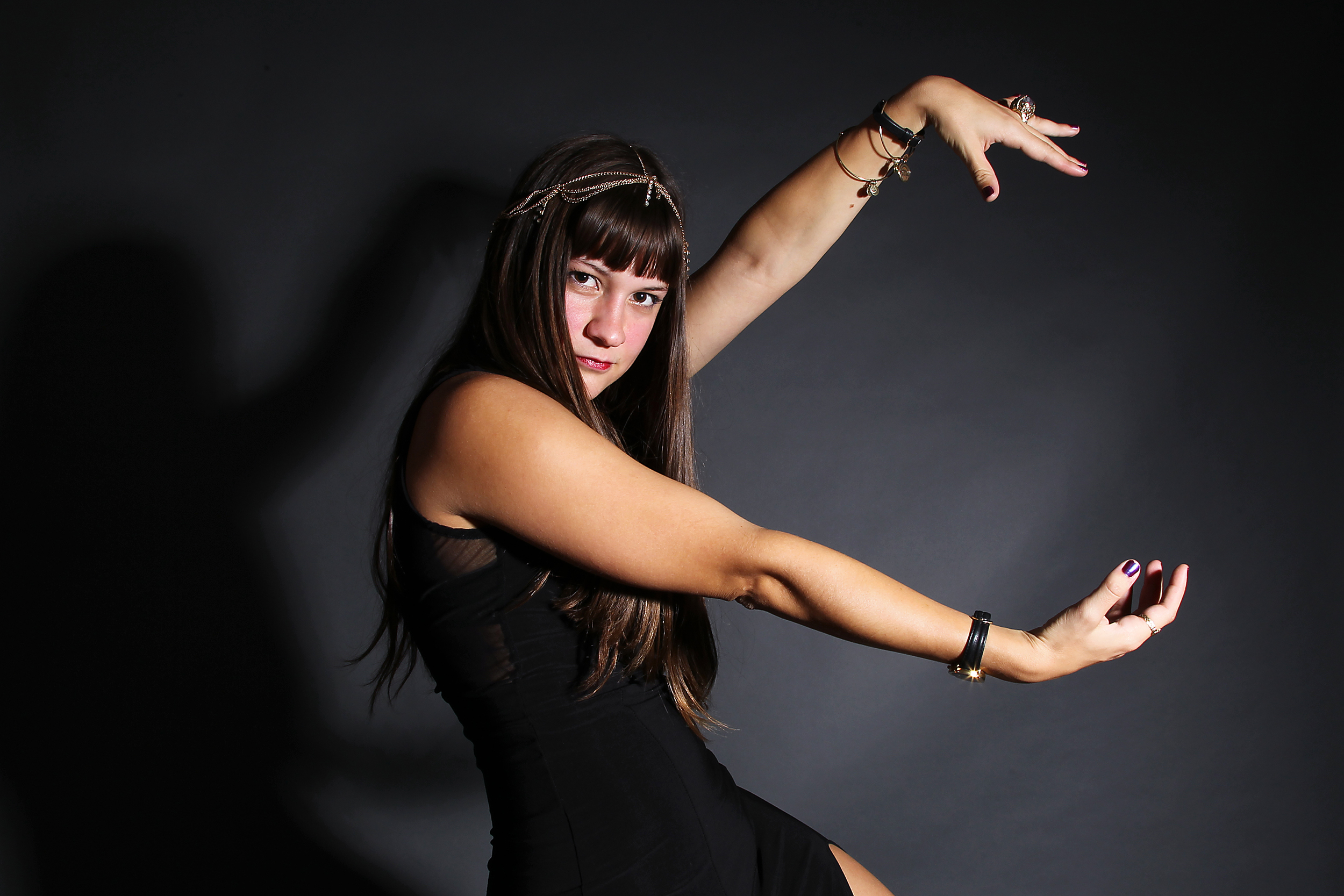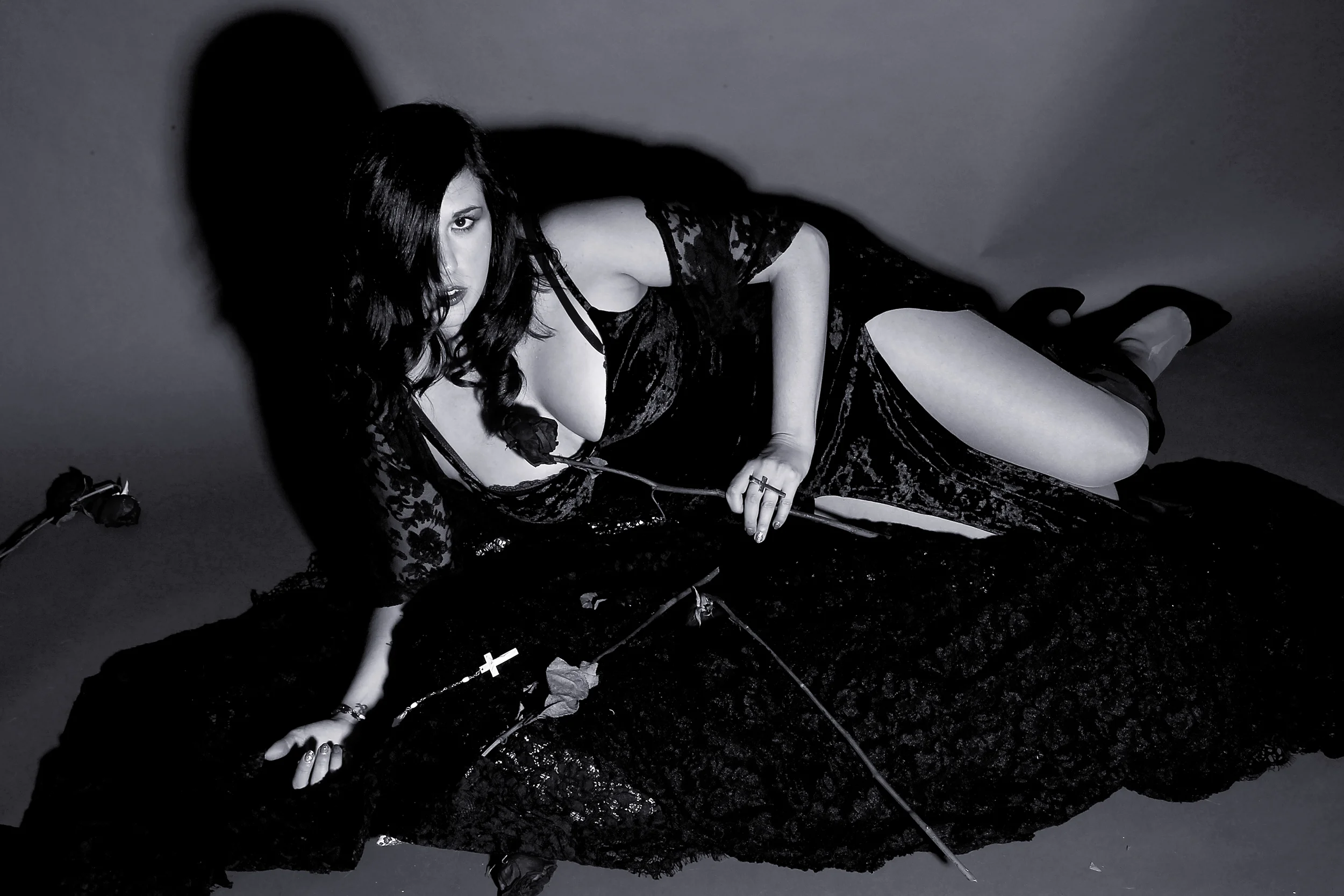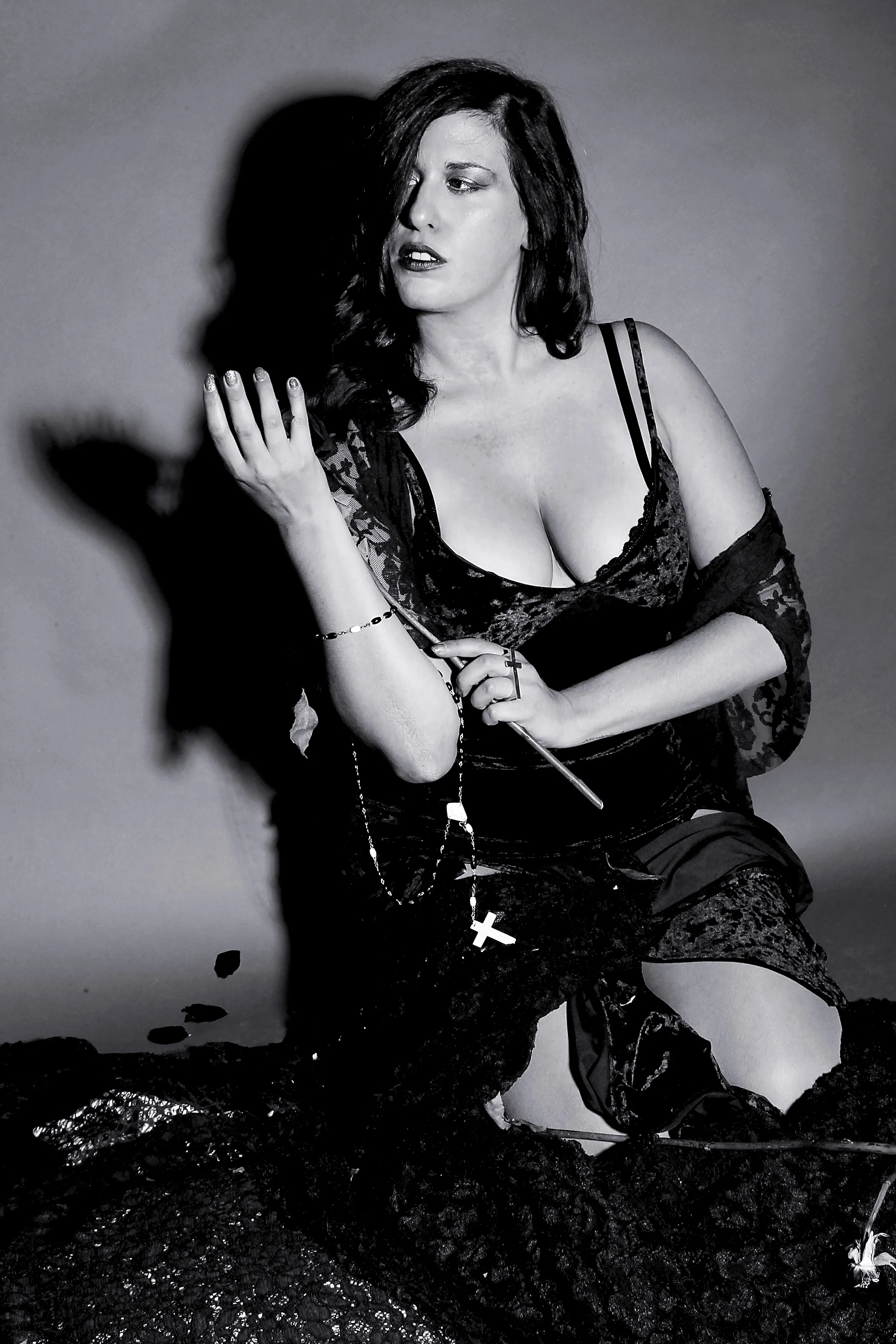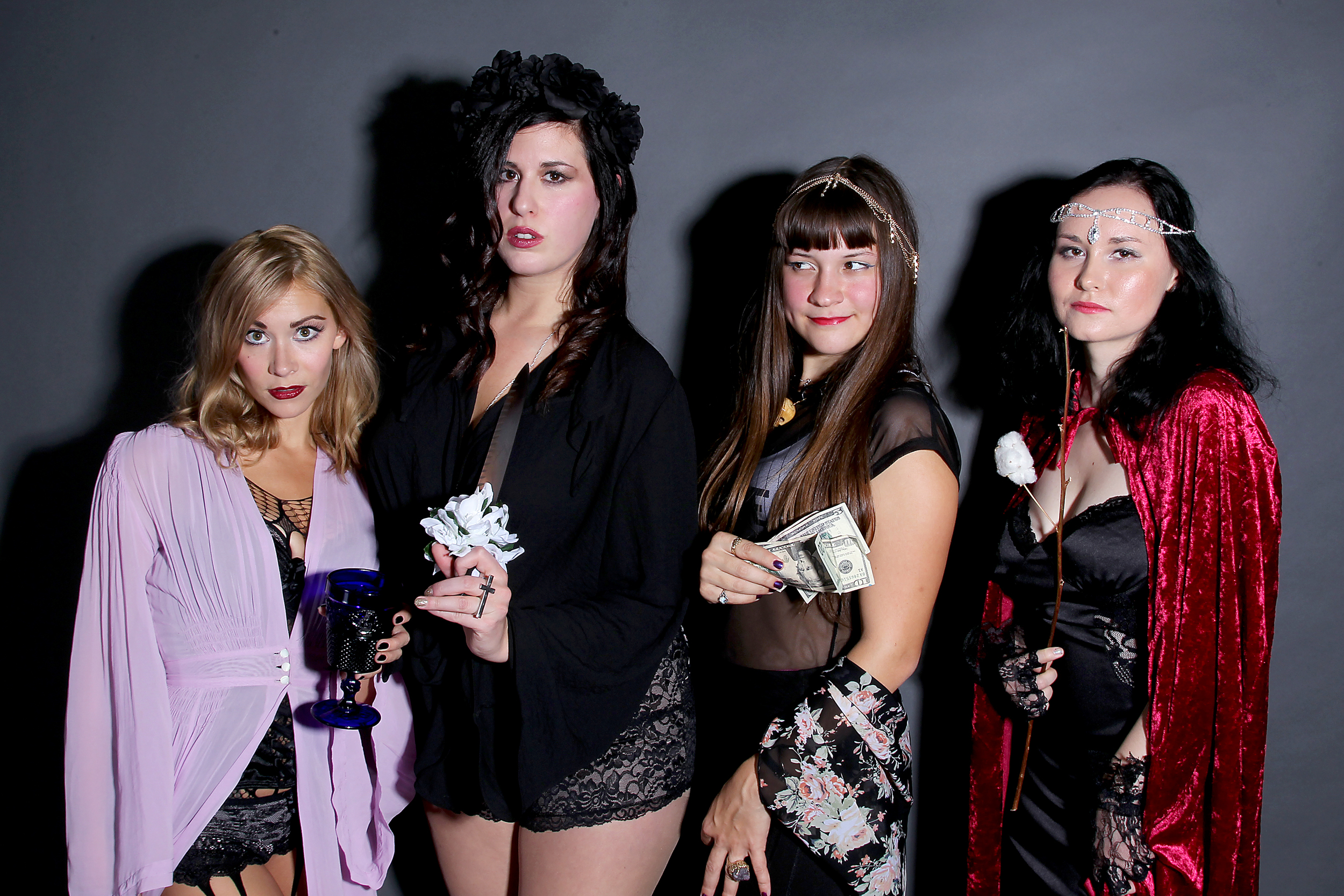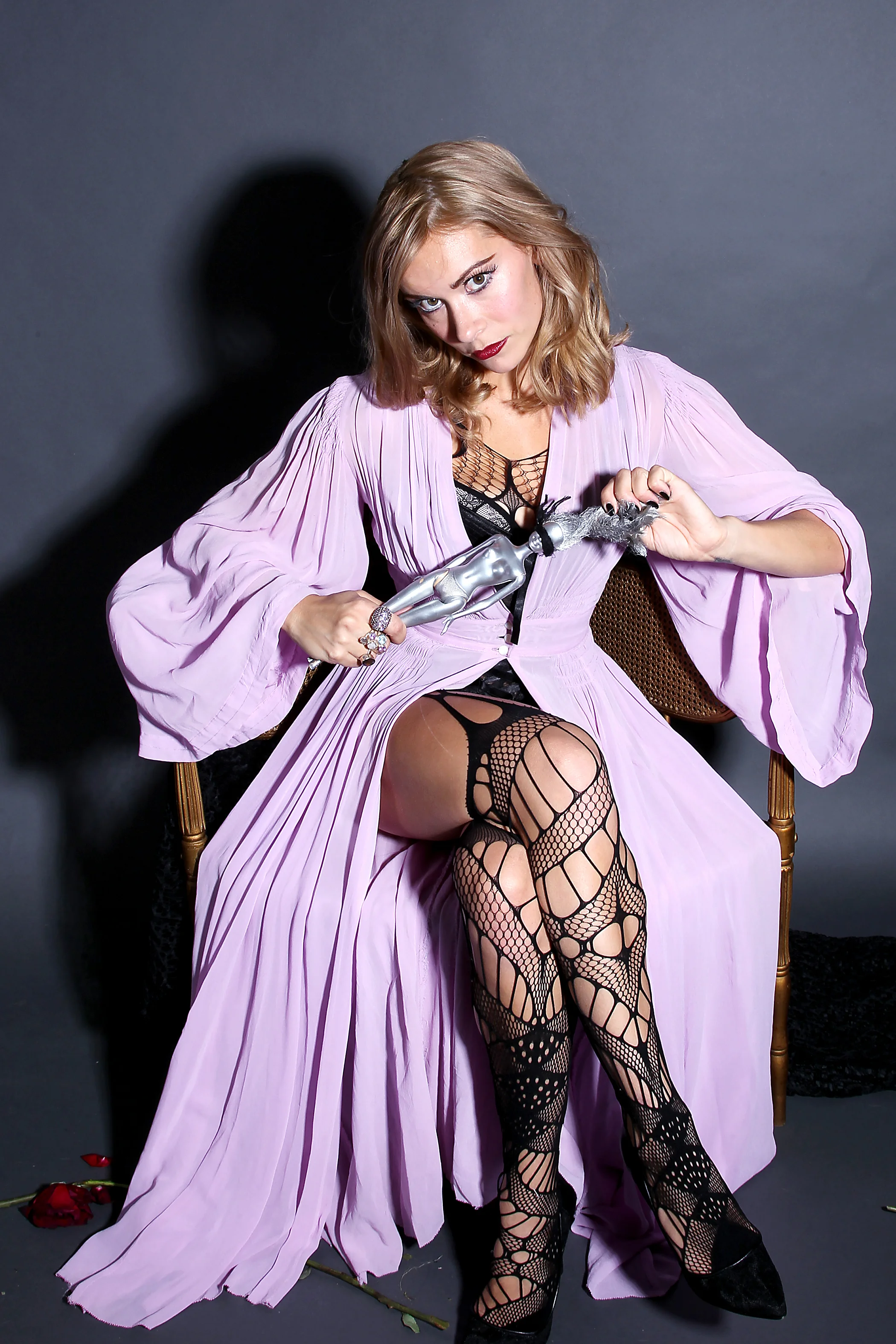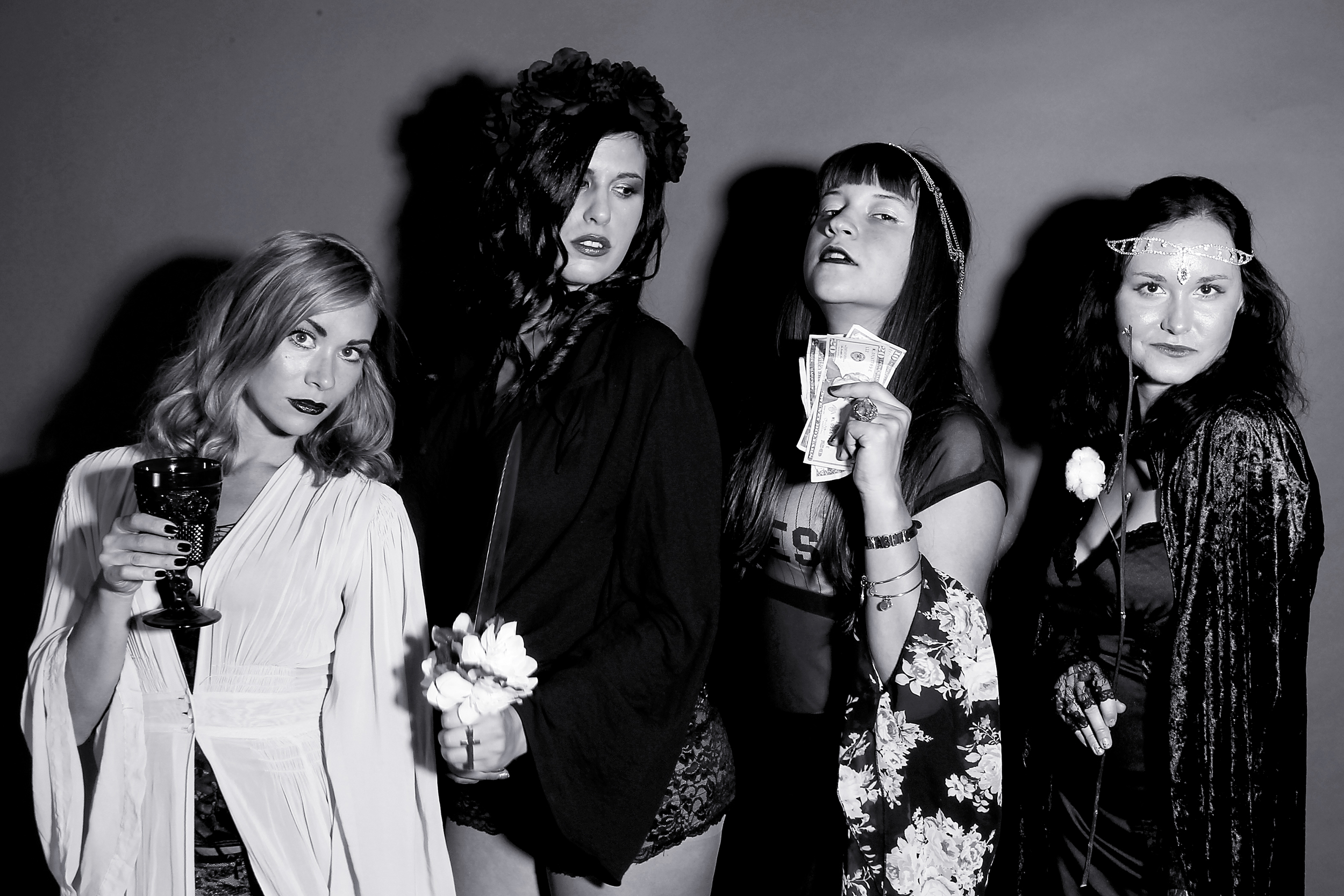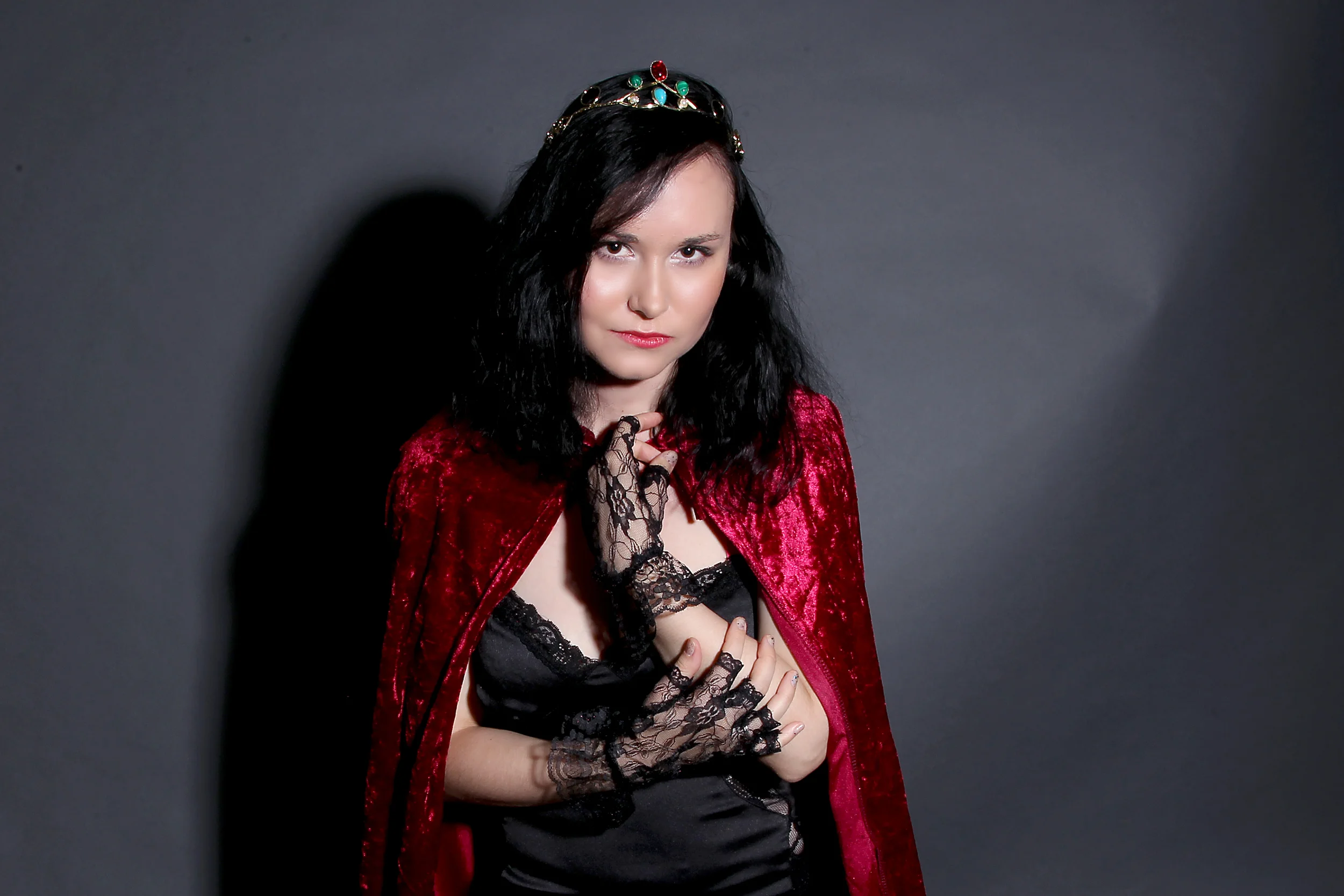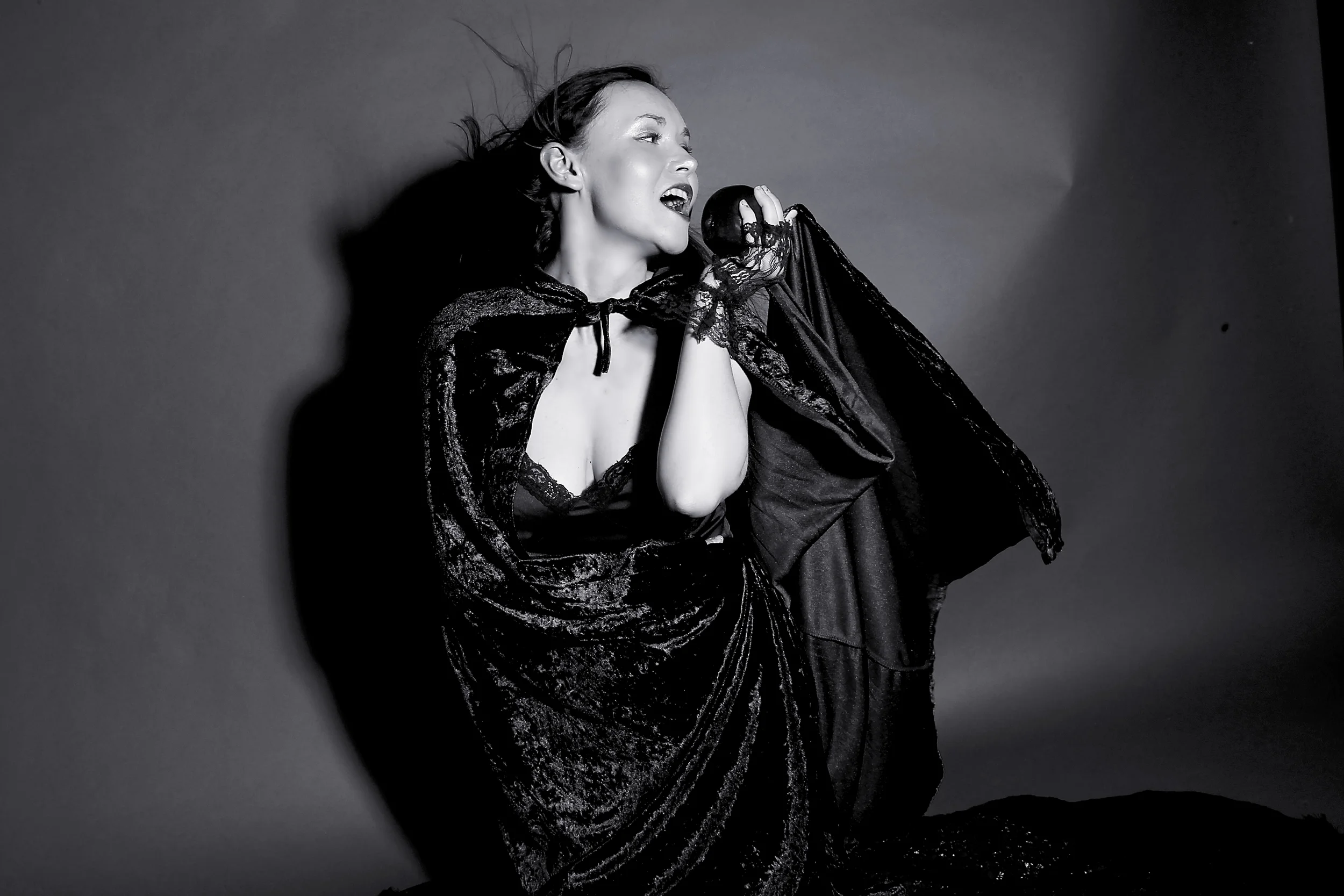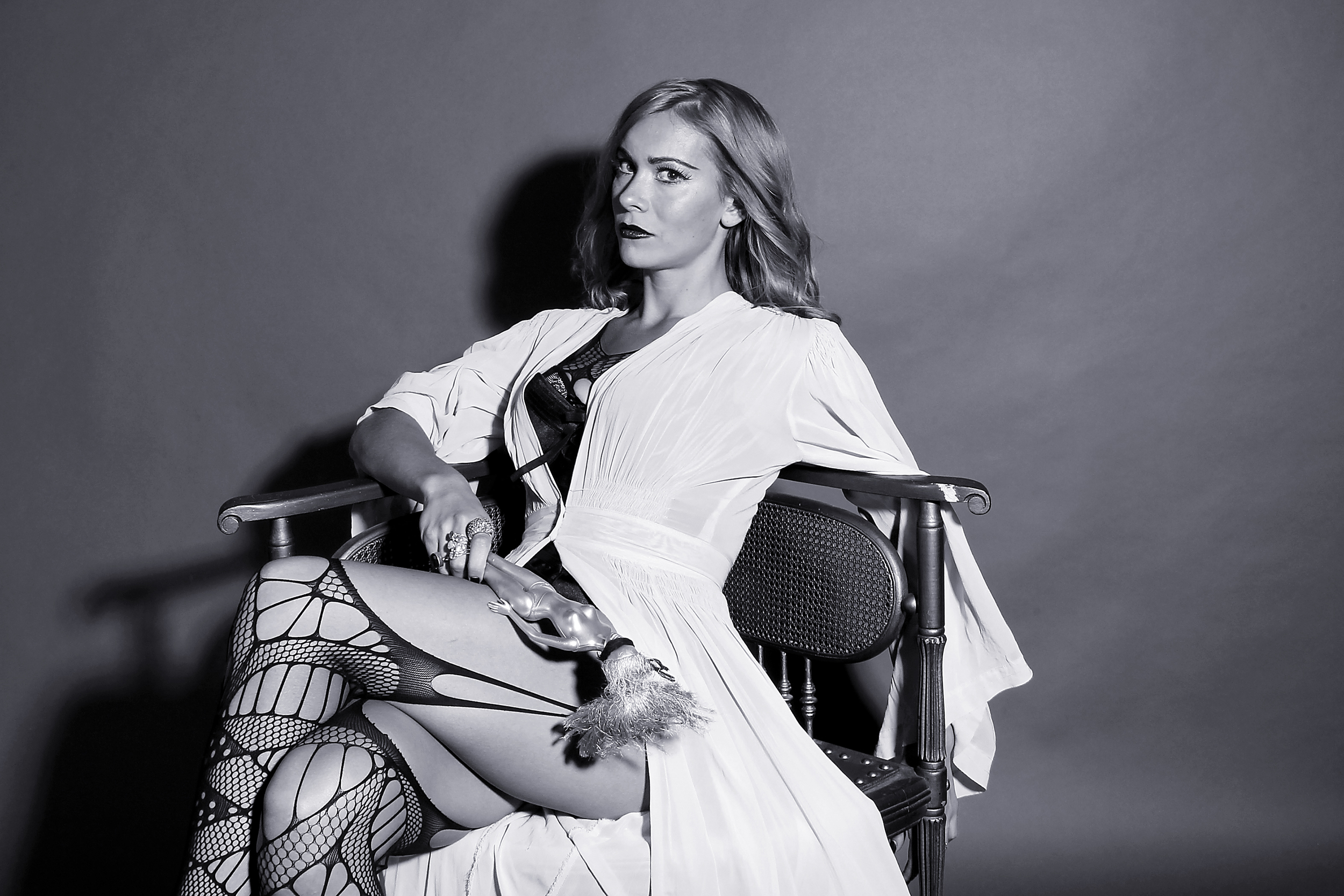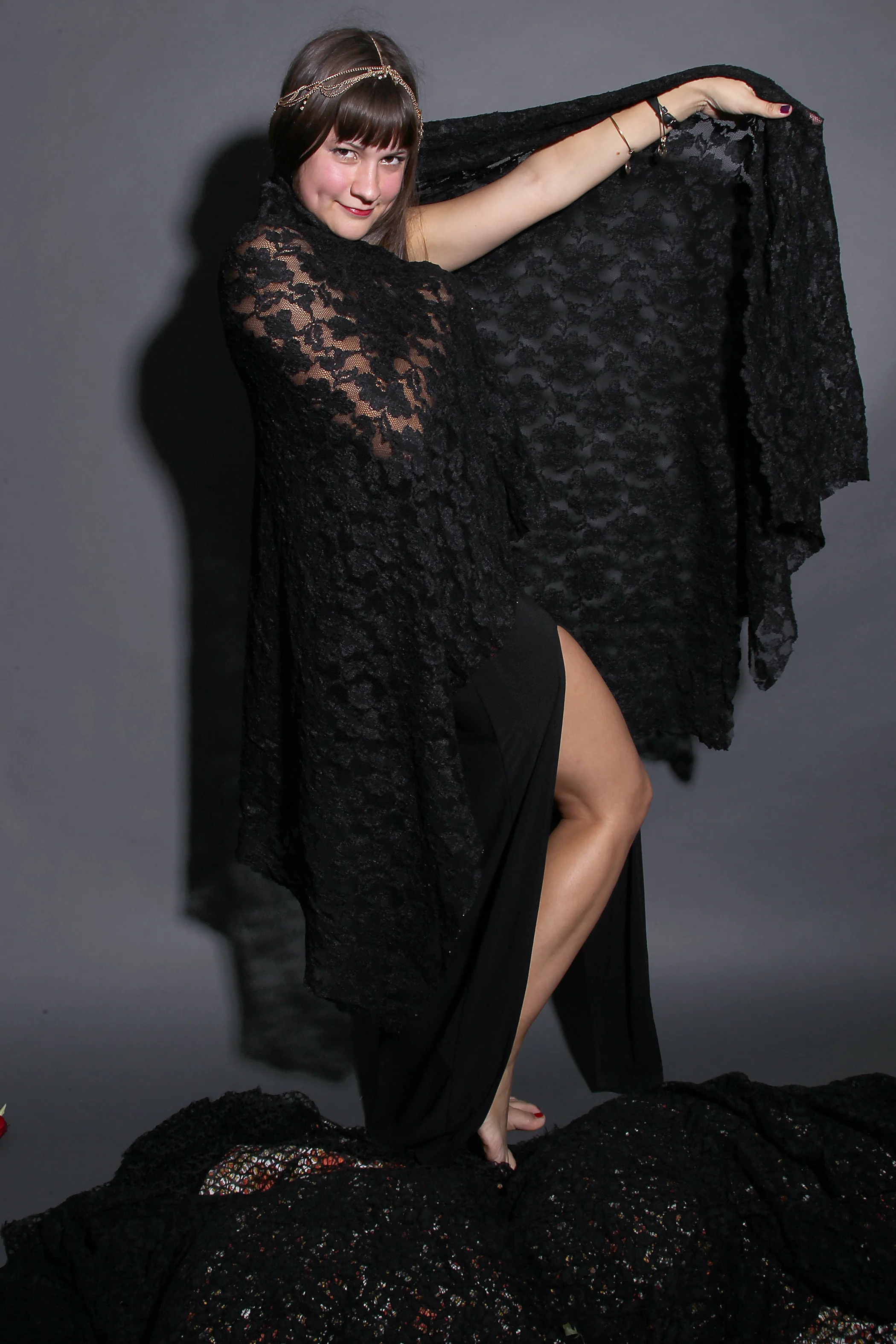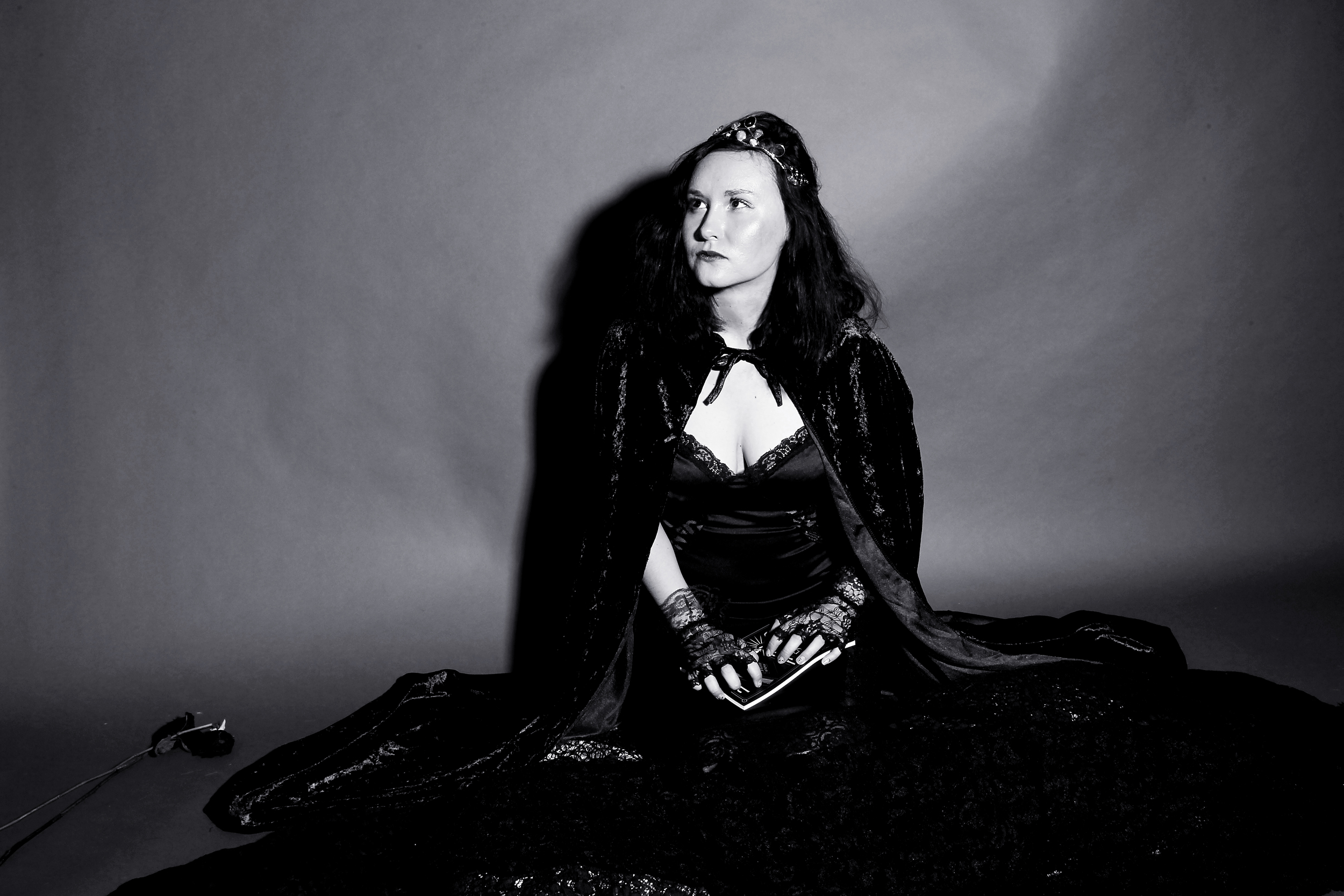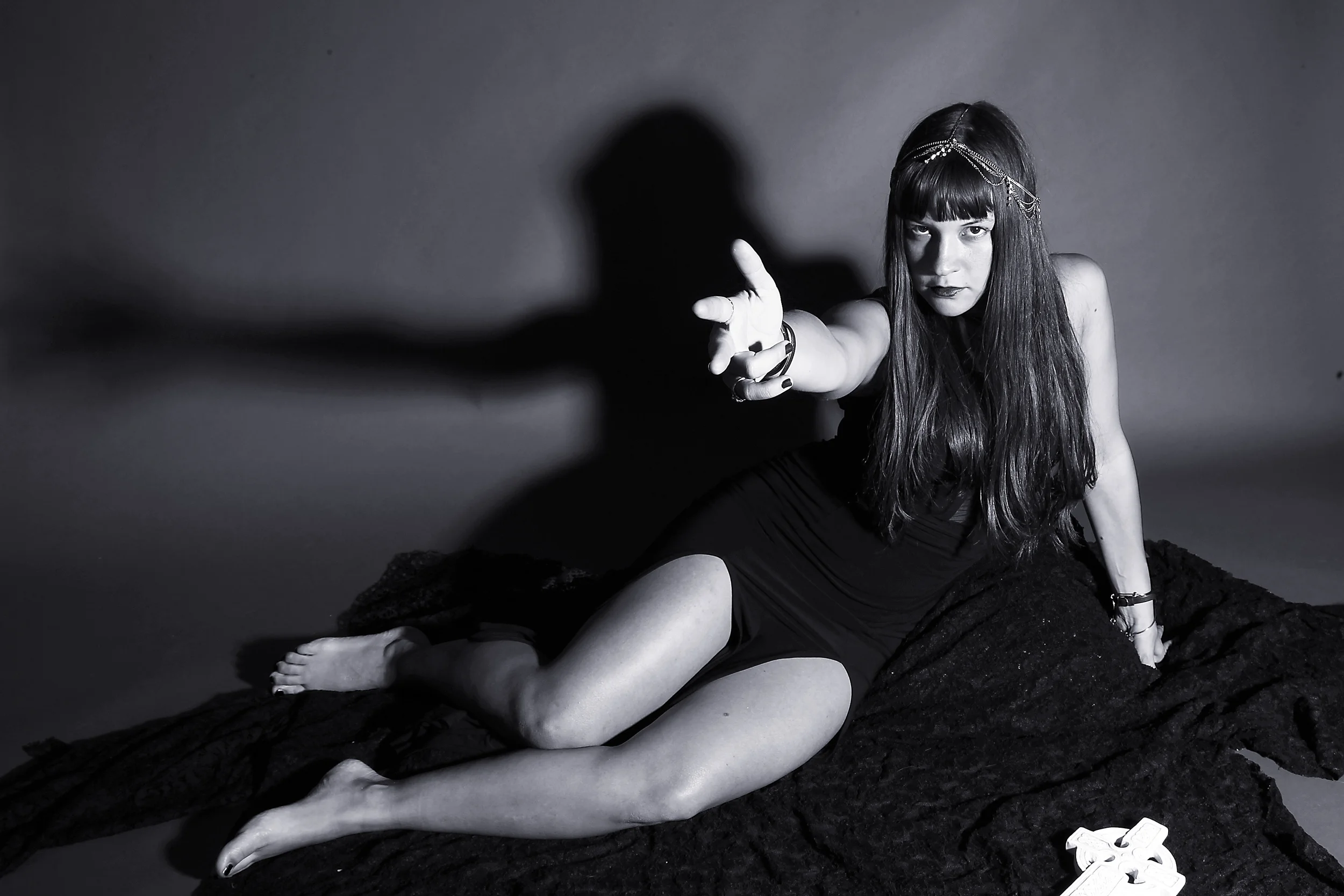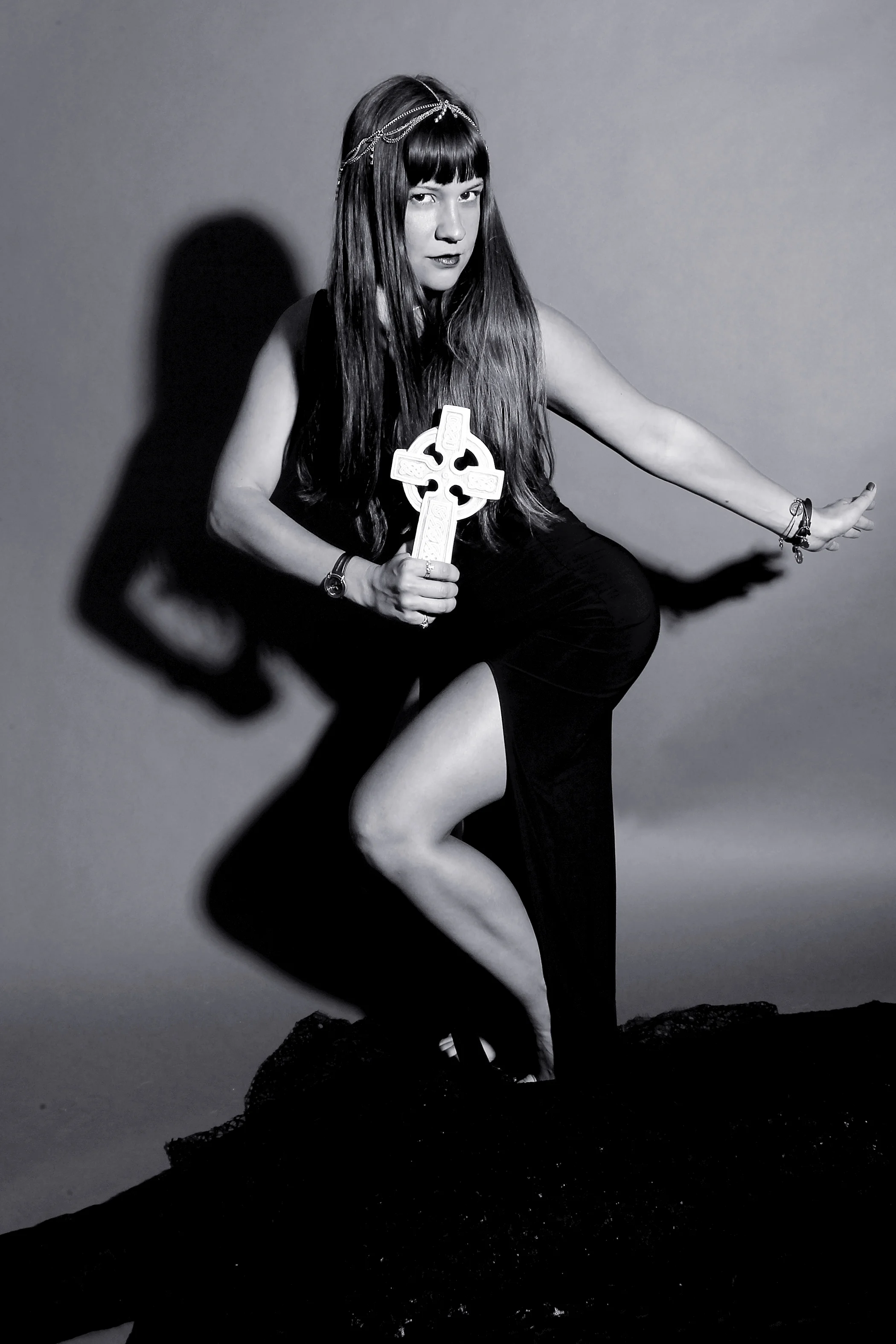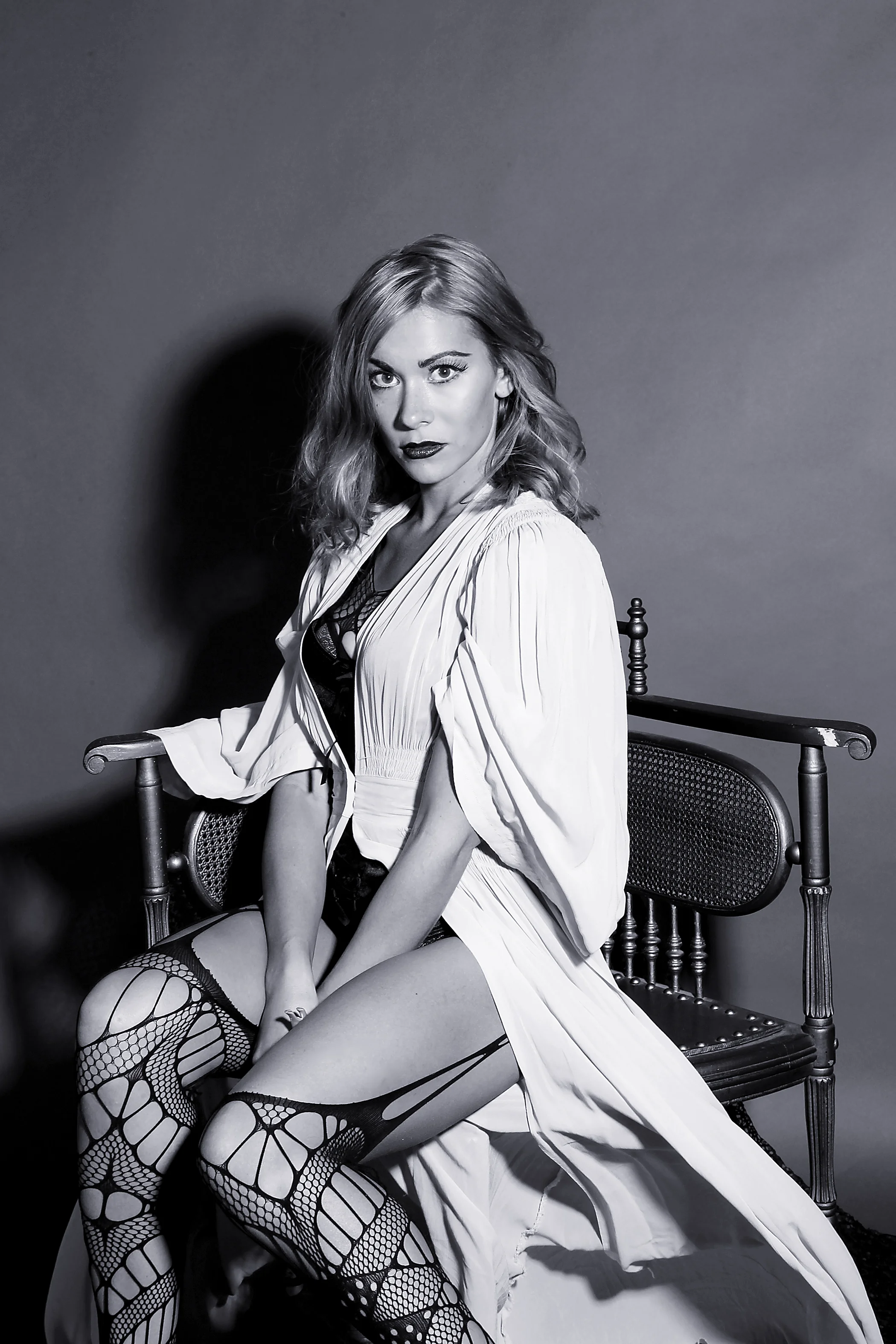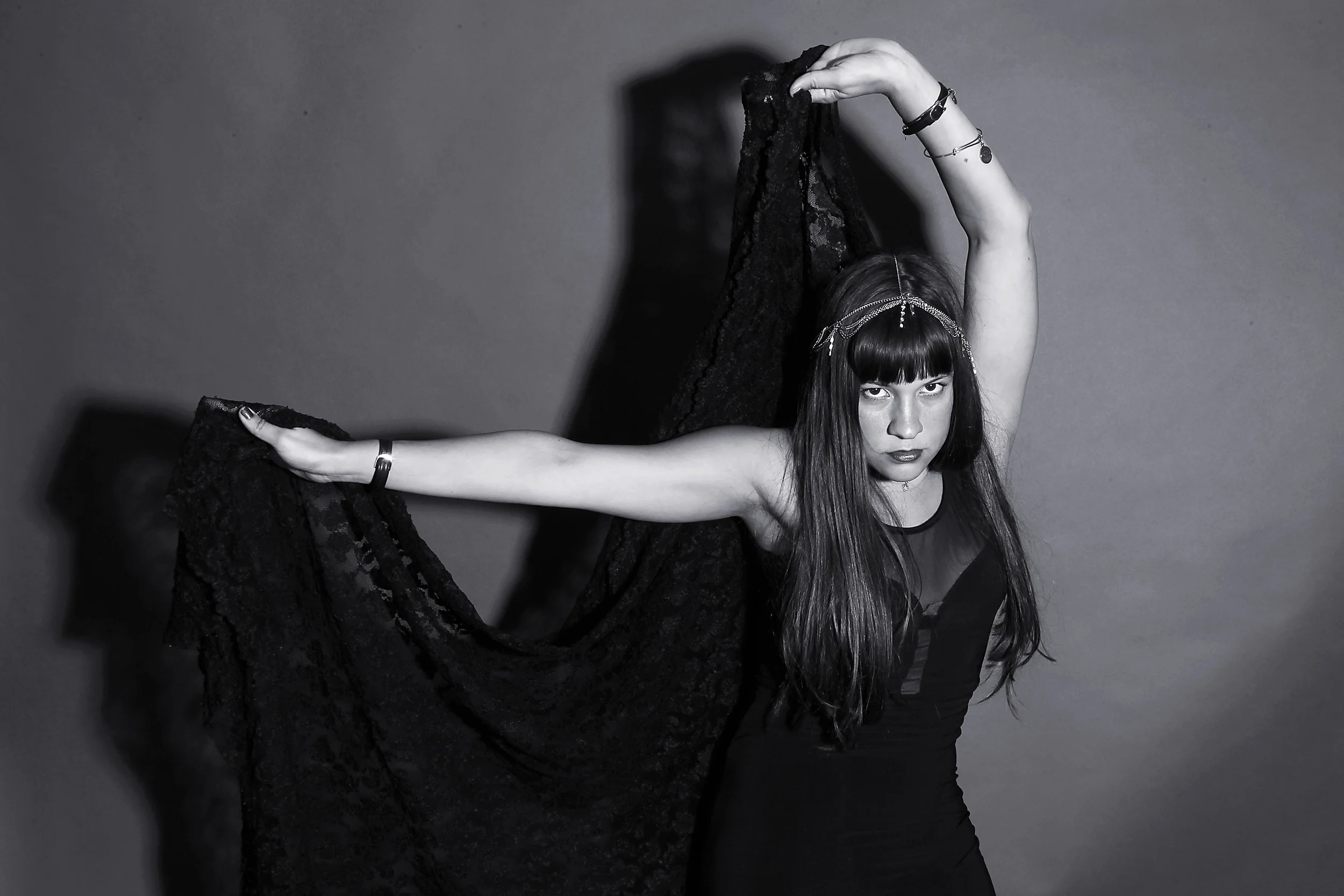Films for your favorite lady
Read MorePhoto credit: still from Werner Herzog's Nosferatu, Phantom der Nacht (1979)
24 Hours Of Halloween: Poems by Lauren Gordon
When the lungs balloon
Read MoreIllustration credit: Edward Gorey
24 Hours Of Halloween: Poems By Michelle Detorie
Grief machines were called angels
Read MoreWitchy For Halloween: Let's Make An Ancestor Altar
Doesn't Halloween stick out like a sore thumb among the other appropriated and mish-mashed American holidays?
Read MoreA Look Into The Luna Luna Coven
BY AURORA ROSE DE CROSTA
This Luna Luna coven shoot (with a few of our staffers & editors) was Inspired by the witchy pin-ups of Hollywood's Golden Age, with actresses like Veronika Lake, Vivien Leigh and Marilyn Monroe. Happy Halloween.
Get Your Spooky On: The Roots and Somber Rites of Halloween
I am nauseous from watching Halloween being twisted from a grotesque horror show paying homage to the otherworldly realities around us, into a sparkle-clad Disney princess squeefest!
Read More4 Graphic Novels You Should Read On Halloween
We promise you'll love these.
Read MoreBlack Cat Halloween Tarot Spread
So, here I adapt superstition into a Scary Cat Halloween Tarot Spread for you to utilize, passing on a particular family story in a witchy way.
Read MoreWitchy World Roundup - October 2015
Our monthly Witchy World Roundup is curated by Joanna C. Valente. Want to contact her? Email her here.
Hoodoo witches speak out about the appropriation of their magic:
"'Some people will just read one book on Hoodoo and start selling oils online to make a quick buck," he says. "To me, that's appropriation.'"
-Gabby Bess in Broadly.
Why coming out as bisexual shouldn't be an overshare:
"My current closet is a lesbian one. I am a ciswoman who is married to another ciswoman, and, wait for it, we have a child. I have experienced coming out as bisexual very differently from this set of life circumstances. People seem genuinely, if biphobically, concerned for my marriage and family. My bisexuality is a particularly harmful overshare for certain liberal straight people because it ruins their image of me as a respectable gay person who was making them more tolerant."
-Allegra Hirschman in Buzzfeed
Want to be a better poet, but don't have money? Don't worry:
"Take free and low-cost workshops and classes. Find the free ones. Find the low-cost ones. When I made the decision to start writing seriously, I researched on Google and took a number of free one-time sessions through places like the New York Public Library, Gotham Writers Workshop and the Women of Color Writers Community. I went on to take 5-week workshops offered by the Women of Color Writers Community, some of which I was able to take via bartering—a method I talk about later in this post—because they needed the organizational support at the time."
What about the spouses of transgender people?
"In the midst of this turmoil, wives are often left feeling like they can’t voice any disapproval without coming across as transphobic. “If you say, ‘Hey, what are the kids going to think?,’ is that transphobia?” asks Laura Jacobs, a transgender psychotherapist who specializes in work with gender nonconformity. “Or is that because you’re really concerned about the kids? Because you don’t know what else to say? Because the kids really are transphobic and you’re being protective of your spouse? The dynamics of that kind of a situation are so complex, but the struggles of the partners are invisible."
-Alex Morris in New York Mag
Because we all love facts about banned books:
"9. From 1990–1999, Judy Blume was one of the most challenged authors, with five books on the most frequently challenged list: Forever, Blubber, Deenie, Are You There, God? It’s Me, Margaret, and Tiger Eyes.
10. Maya Angelou’s I Know Why the Caged Bird Sings is one of the most challenged books of all time, citing “racism, homosexuality, sexually explicit, offensive language, unsuited to age group."
-Krystie Lee Yandoli on Buzzfeed
Why we need to listen to undocumented poets:
"'I’ve been growing up a brown, femme, queer woman of color. The idea of taking up space has always been challenging. You’re not even supposed to be here. You’re supposed to be quiet,” she said. “A lot of the space in my poetry has been intentional about taking up space … That’s just me saying, I’m going to do whatever I want with the page. That is a radical thing, for me.'"
-Corinna Segal for PBS
Because the safest place to bury a body is in another body:
"A Russian can’t write a book without nesting dolls;
burying ourselves in ourselves is in our blood, our mother’s blood.
We birth, we bury, we swallow tongues down the body
buried inside the body. Tongue is a delicacy
you can serve at a funeral. The safest place to bury a body
is at a funeral."
-Sonya Vatomsky in Glittermob
When white voices drown out those of color in the lit world (& the world in general):
"White supremacy tries to reduce people of color to our traumas. Resisting white supremacy means insisting that we are more than our traumas. One quick perusal through the shelves of world literature in any bookstore confirms just what the literary world wants to see from writers of color and writers from developing nations: trauma. Why, for example, is the English-speaking literary world mostly interested in fiction or poetry from China if the writer can be labeled as a “political dissident”? Even better if the writer has been tortured, imprisoned, or sentenced to hard labor by the Chinese government at one point. Surely there are amazing Chinese writers who don’t just identify as political dissidents just as there are many amazing white American writers who don’t identify, or rather, are not identified as one thing. Why are we so perversely interested in narratives of suffering when we read things by black and brown writers? Where are my carefree writers of color at? Seriously, where?"
-Jenny Zhang for Buzzfeed
Because listicles on 10 weird facts about the Salem Witch Trials makes the world more fun:
"Technically, England’s Witchcraft Act of 1735 was still official and on the books until 1951, when it was replaced with the Fraudulent Mediums Act. The language of the original Act wasn’t about persecuting witches per se, but rather made it illegal for people to claim that others were witches. Yet being legally convicted meant that you purported to have the powers of a witch—and in fact, a woman named Jane Rebecca Yorke was found guilty in 1944 under the law, though she was convicted mostly because she was defrauding people with bogus séances."
-Sean Hutchinson at Mental Floss
There needs to be a class on this mini-syllabus on marriage plots:
"Marriage plots are rarely associated with anything beyond supposedly frivolous, Jane Austen-esque “romances”, however our society’s fixation on matrimony continues to permeate art, politics, and literature. If Austen’s views on matrimony exposed economic instability, class restrictions, and patriarchal values, what does today’s culture reveal? Despite the high pedestal marriage is placed on, American media is inundated with rhetoric that does little but force discerning viewers to question the very “values” it supposedly represents. Divorce rates have never been higher, consumeristic wedding culture has never been more exorbitant, “The Bachelor” has just been renewed for its twentieth season—where does this leave us?"
-Meriwether Clarke on Entropy
Image still from this.
Alexandra Naughton on Lana Del Rey: Poetic Muse
BY LEZA CANTORAL
Alexandra Naughton defies categorization. She is a force onto herself. She dances in and out of the lines of people’s expectations and is always one step ahead of the crowd. I am pleased to share this little glimpse into the artistic process and soul of Alexandra Naughton as she talks about her muse, Lana Del Rey. You can follow Alexandra on Twitter @theTsaritsa. You can purchase her Lana influenced book My Posey Taste Like here.
Describe the style and concept behind ‘My Posey Taste Like.'
‘My posey taste like’ is a concept album inspired by ‘Born To Die’ by Lana Del Rey. I mean, it’s a book, it’s not something you can play on your record player, but I think of it as being an album anyway. Like it feels like one. I get words and phrases stuck in my head which repeat in patterns and feel like lyrics and a lot of that was happening when I decided to write this book in a day, which I did because I wrote a blog post on Enclave about something and started playing with the ‘my posey taste like’ lines to start the blog post and then I decided I liked it so I kept going and turned it into a poem which I submitted to Lisa Marie Basile and then I was like, I can make a whole chapbook out of this and I was going through something emotionally at the time and kept playing with the idea of making a sad love album that feels like a lost prairie house dropped on a sunny palmlit street and now I’m even thinking about expanding the chap into ‘my posey taste like: the paradise lost edition’ because I’m still in love with the idea and I have more to say.
Before you wrote this collection you wrote one inspired by Billy Corgan. Is there any connection between them in your mind?
There is a connection because I really like to think of my poetry collections as being albums because I wish I had a good voice and the ability to write music. I am a terrible singer and I don’t really write lyrics maybe more like lyric fragments or unfinished thoughts which are more mood and undertone than the things explicitly stated in song lyrics. I was listening to a lot of Smashing Pumpkins when I wrote ‘i will always be your whore: love songs for billy corgan’ and so a part of his soul, or my interpretation of his soul because I felt like I was absorbing something by immersing myself so much in his work, is embedded in my work in that collection. It’s the same with the Lana collection, ‘my posey taste like.’ I was listening to ‘Born to Die’ nonstop for several months and I just felt very wrapped up in my interpretation of Lana’s soul/persona on that album. Music is like therapy for me and I have a tendency to overplay one artist/album for a long duration because it is soothing and familiar.
What are your artistic influences?
Pop culture, probably. Stuff like commercial jingles, tv shows, cartoons, things I hear on the bus in passing, Brian de Palma films, but also more ‘high art’ shit like short story collections with unreliable narrators and novels written by women.
When did you know you were a writer?
I think I only started taking myself seriously as a writer in college. I mean, I’ve always written. I’ve always been making up songs and putting on performances for my family, ever since I was a baby. But in college I decided I wanted a writing certificate, because some kids in my creative writing poetry class who wrote crappy poetry were going for one. I didn’t even know it was an option. I heard them talking about it and I was like, I can do that. After that poetry class, I took a nonficiton writing class with Lee Klein and started considering publishing my work. It was there in that class that I was like: I’m doing this. I’m totally doing this.
What was the first Lana Del Rey song you ever heard?
There was a Lana Del Rey anthology called ‘Dope Angel Pussy’ and I wrote a poem based off her song ‘Off to the Races.’ I did not listen to the song. I just looked at the lyrics. It was not until later that I actually listened to the song and I was like, shit, this is really good!
What is your favorite Lana Del Rey album and why?
‘Ultraviolence’, because it feels like you are listening to a record from the 60s. It has that warm presence, that ‘wall of sound’ sound consistently throughout. In comparison to ‘Born to Die’, it’s a lot more mature and sure of itself. Her vocals are really strong and beautiful and stand out while being surrounded and wrapped around by the music.
What is your favorite song of Honeymoon and why?
It’s hard to pick just one, but I think ‘The Blackest Day’ is my favorite because it feels like ‘Black Beauty’ graduated from college and discovered more adult problems and it resonates a lot. ‘Swan Song’ is another one I keep playing. I listen to it and it makes me feel like a wandering Judy dressed up like Madeline and wanting to run away but knowing that it’s impossible.
Lana is a lyrical storyteller. You have said that you do not like listening to her songs as singles because the album tells the full story. What do you think is the story she is telling in Born to Die, Ultraviolence and then Honeymoon? Do you see a larger narrative between the three albums as if they were a book series?
Lolita on summer break and reminiscing about her days of being a 14 year old alcoholic, then Lolita going to NYU and living in Brooklyn and building a vinyl collection, and then Lolita as a 30 year old still feeling like a girl and trying to cope with immense pressure from the people around her.
What is it that you relate to about Lana’s music?
The torment of desire. Wanting attachment, fearing disappointment, feeling disappointment but still putting on her makeup. Acting unaffected but hurting, showing it. Lana is disarming. I love her raw honesty, her unabashed fragility.
What do you admire about Lana?
She loves singing jazz and she’s got the blues and she rearranges timeless narratives and constructs them to suit her in the best way. I honestly just love her music, this sounds corny, but it speaks to me.
Who is Lana Del Rey?
Lana Del Rey isn’t a real person. In a way she’s like Andy Kaufman, in that she is always performing. Like that first SNL appearance-- pure performance art, and hella people were shaking their heads like, what did I just watch. Everything is intentional, and that confuses people. She’s on brand all the time. Her fashion is a reflection of culture. That’s how cute girls these days dress. They don’t just wear clothes, they wear costumes.
What is it that inspires you the most about Lana as an artist?
Her ability to brand and make herself an icon. What she’s doing is not new, the old Hollywood revival thing, I feel like tons of singers have tried to recreate that feel that you get when you watch but it feels really fresh and really different.
Why do you think Lana Del Rey appeals to so many young women these days?
She’s cool and doesn’t seem phony. She doesn’t care if everyone likes her. She’s not a Taylor Swift or a Katy Perry. She’s not pretending to be the ‘good girl next door’ because she knows that label is meaningless and detrimental. She’s been around the block. She’s not afraid to put herself on blast. I truly believe every song of hers is about her persona’s personal struggle to varying degrees. It’s fictional, but I don’t think she’s ever talking about anyone else (someone was trying to say ‘Art Deco’ is about Azaelia Banks and I was like, no dawg this is reflection of self/reflection of persona).
What do you think makes Lana Del Rey such a compelling muse?
She’s classic and timeless but also cutting edge. She represents something that was once the ideal, but it’s distorted and wrung out and left for us to absorb what we can.
Leza Cantoral is the author of Planet Mermaid and editor of Walk Hand in Hand Into Extinction: Stories Inspired by True Detective. She writes a feminist column about noir film for Luna Luna Magazine called Shades of Noir and writes about pop culture for Clash Media. Her upcoming collection of short stories, Cartoons in the Suicide Forest, will be coming out later this year through Bizarro Pulp Press. You can find her short stories at lezacantoralblog.wordpress.com and tweet her at @lezacantoral.




































